- May 9, 2025
-
-
Loading

Loading
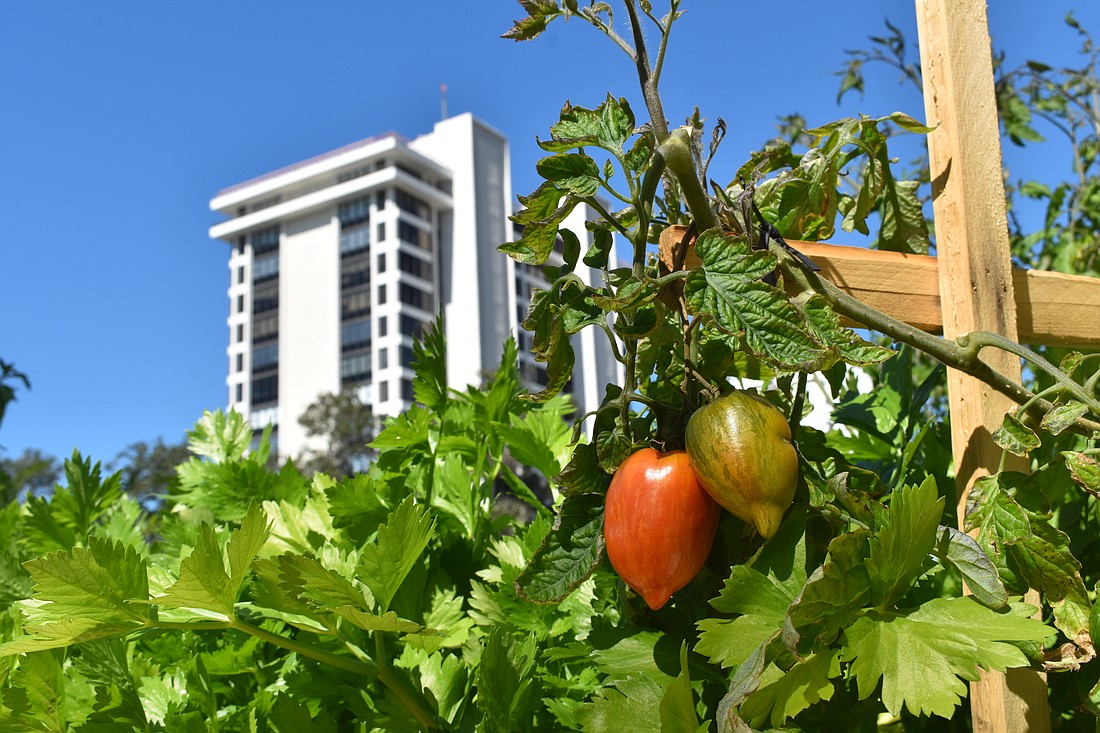
Last month, Michael Klauber offered a demonstration to staff in the kitchen of The Green Orchid at Selby Gardens by Michael’s On East.
Klauber, who is the founder of Michael’s on East, placed a sauté pan on the stove, brought the water to a sizzling temperature, and set his hand directly on the burner.
To the amazement of staff, it didn’t burn.
The answer was simple; the restaurant utilizes induction heating equipment, which performs heat transfer through an electromagnetic field.
It’s part of the restaurant’s mission of energy efficiency.
When it holds its soft opening on Feb. 19, The Green Orchid will be the world’s first net-positive energy restaurant — meaning it generates more energy than it consumes — according to Selby Gardens’ president and CEO Jennifer Rominiecki.
In a setup that she said has never been used to such advantage before, the restaurant’s power comes from a nearly 50,000-square-foot solar array placed atop the parking garage to which the restaurant is attached, also called the Living Energy Access Facility.
“Potentially no one may have attempted it, even,” said Rominiecki. “And we’re able to attempt at such an incredible level, because of the very generous philanthropic support we have received for the project.”
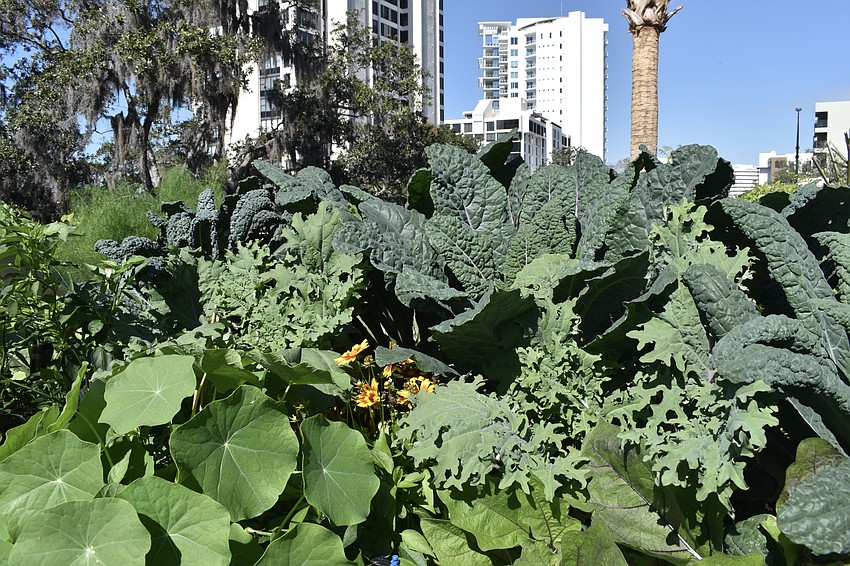
Yet the LEAF supplies more than power; it’s also contributing to the store of ingredients as well, thanks to a garden adjoining an upper floor of the parking garage, created and managed by Operation ECO Vets.
The restaurant is part of the $51.6 million directed toward Phase 1 of the campus’ redevelopment, and was created with the project’s sustainability goals in mind.
Almost 99% of funding for the redevelopment comes from the private sector, with more than 3,500 private donors to the project.
The globally inspired cuisine will focus on sustainably sourced options for produce, seafood, poultry and other meats, with a major focus on local ingredients.
This means the garden will be essential for supplying a substantial portion of the daily offerings, although, with the still-evolving nature of the seasonal menu, it remains difficult to determine in precisely what amount.
In fact, it’s difficult to even pin down a singular inspiration for the restaurant’s food, as it will draw its inspiration from around the world, including Asian, European, Spanish and Korean cuisines.
When Klauber first visited the garden, he found himself amazed by the range of options that Operation ECO Vets had in store.
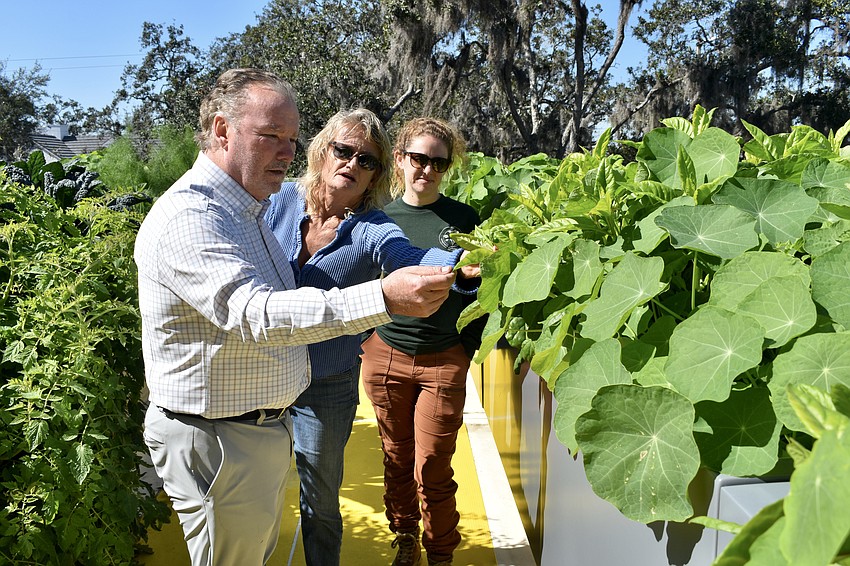
Some of the vegetables you will find include radishes, varieties of kale, tomatoes and lettuces, arugula, beans, peas, fennel and lots of celery.
You’ll also find many herbs, like cilantro, rosemary and a variety of mints, as they tend to grow well during the wintertime.
That isn’t to say that growing plants in Florida is ever easy. Christina Esposito, the project manager for the garden, a former intern with the nonprofit and the owner of Greener Gardens, said creating a setup that would sustain a restaurant required significant research on her part.
“I basically said it was like a Venn diagram — what they want, what we can do, and we meet in the middle,” Esposito said.
Camille Van Sant, the founder of the nonprofit, echoed her comments.
“I always tell you when I am teaching, Florida is too hot, too cold, too wet, too dry, and the sun is scorching — and the UV rays, they burn plants too, not just us, so it’s very challenging.”
The garden uses potting soil, rather than the soil of Florida, which is hostile to the garden’s plants, while Esposito is also conscious of the plants she includes.
For instance, the tropical spinach, which is highly nutritious, grows better in the local climate than regular spinach and can be used in soups and salads.
With the garden’s high location, wind can sometimes be an issue, but Esposito said the issue can be managed by being intentional with the planting, while plants can also adapt to the conditions they are required to exist in.
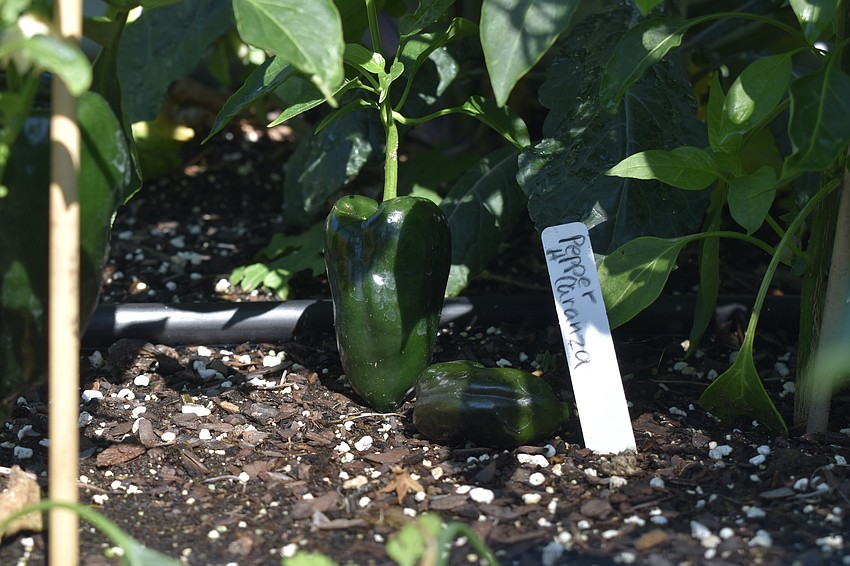
To avoid the use of pest deterrent, the garden has employed nasturtium, a plant with a brightly colored, edible flower that fights pests.
Plants will be rotated out as often as every 30 to 45 days, and Esposito has already begun the process of seeding the next plants in trays at home.
A taste of one of the garden’s low-acid honeycomb hybrid tomatoes shows what’s in store at the restaurant: a vibrant flavor different from what you are likely to find in produce from the supermarket.
“The texture, everything, is so different about it,” Esposito said. “It’s just a salty sweet, a way more powerful flavor.”
As the garden grows, the recipes are being created around it.
But before it could even hope to prepare the food, Michael’s on East had to determine how they would generate enough power to create a net-positive energy facility.
There was no question for the caterer, which has handled all food service at Selby Gardens’ Downtown Sarasota campus for the past 10 years, and, more recently, at its Historic Spanish Point Campus, that it wanted to be involved.
However, there were factors to take into consideration, as it was the first time a net-positive goal had ever been attempted for a restaurant.
All equipment used in the restaurant is either electric or uses induction. While a piece of equipment has a specific number of amperes it will generate, there is no indication of its electricity usage when at rest, which meant trial and error was involved.
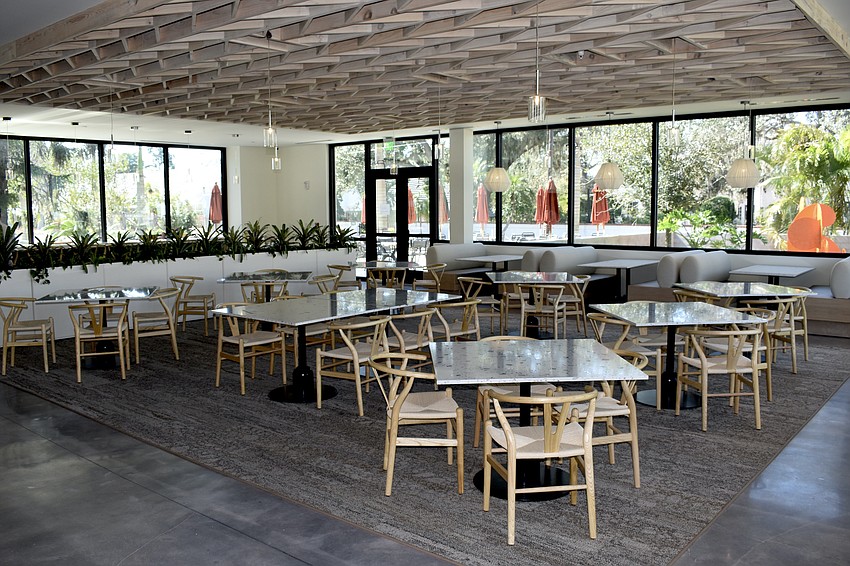
Now, the restaurant is on its way to offering a varied menu of healthy and environmentally friendly options, with inspiration for its cuisine coming from around the world, based on discussions between ECO Vets and Michael’s on East.
For instance, during the upcoming art show, “Yayoi Kusama: A Letter to Georgia O’Keeffe,” which runs from Feb. 11 to June 30 at Selby Gardens, the restaurant will reflect the artist’s home country with Japanese-inspired dishes.
Other examples are cuisine taking inspiration from the coastal regions of the northeast with their preparation of lobster, a pair of dishes from Cape Malay in South Africa and a Korean-inspired dish featuring kimchi.
The offerings will frequently change based on the season, featuring salads of the day, and dishes incorporating special ingredients.
However, the menu will also feature its staples, including The Green Orchid Salad, a version of a Green Goddess that uses herbs from the garden, and Jennifer’s Rooftop Garden Salad, which is named for Rominiecki and features local and rooftop ingredients including goat cheese, avocado, pecans, a grapefruit topping and a vinaigrette.
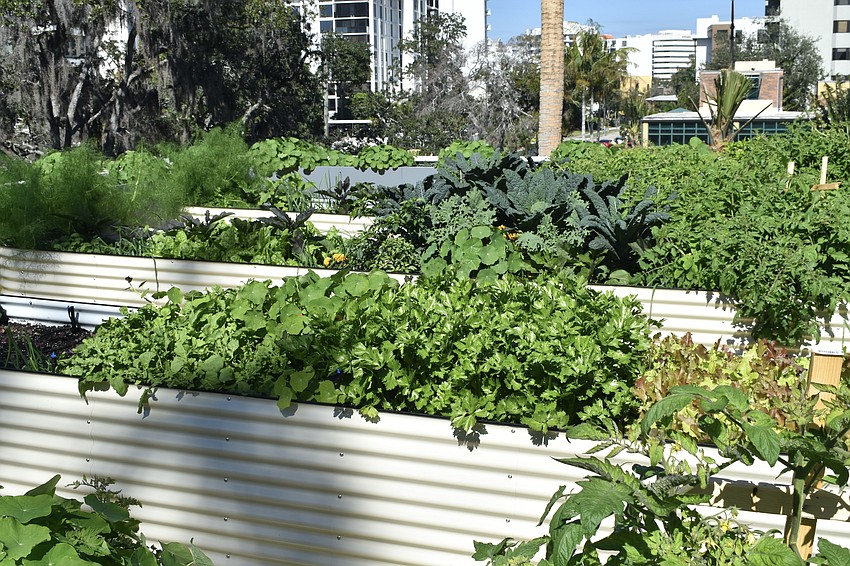
The eco-friendly nature of the menu doesn’t end with the food.
Klauber said staff were amazed at the number of products from wineries around the world that were either sustainable, organic or biodynamic. Additionally, the garden’s fresh herbs, local citrus and other products can be incorporated into a specialty cocktail program currently being finalized.
Then finally, the garden ingredients can be incorporated into ice creams, sorbets and other desserts as well.
Outside of the rooftop garden, the restaurant is working closely with local farms, including those that are raising grass-fed cattle, as well as farms in other parts of the country that are organic or biodynamic.
Guests will be able to enjoy the dishes in a bright and airy setting that features images of orchids at Selby Gardens and heavily utilizes reclaimed wood.
“I think it is so exciting,” Rominiecki said. “Basically overnight, Selby Gardens springboards to the forefront of what a botanical garden can be, and at the same time, becomes an international leader and demonstration site for sustainability.”